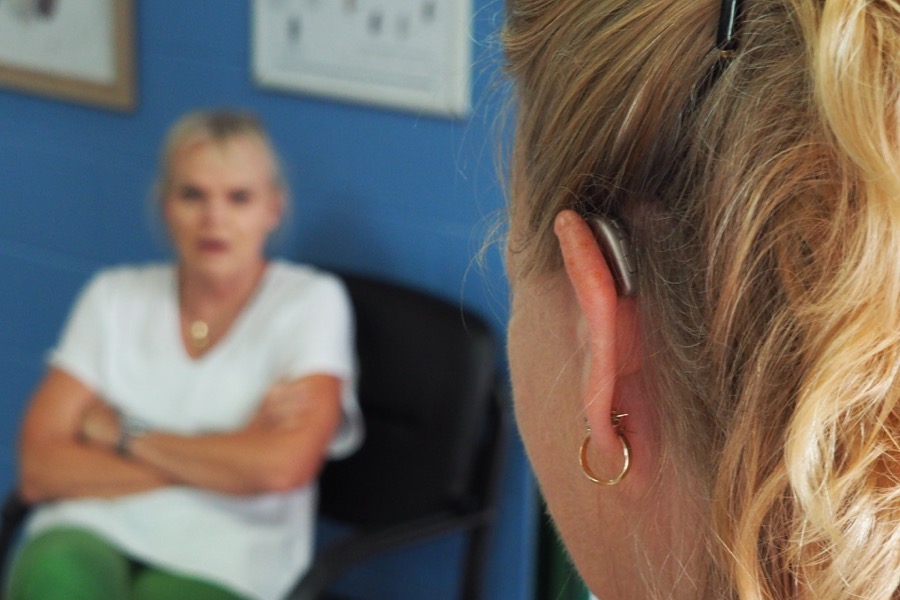As you learned in Part 1 and Part 2 of the Relief for Tinnitus Series, tinnitus is complex, stubborn, and the symptoms are unique for each person. There is no cure, but there is relief when, through trial and error, the right therapy (or combination of them) is found. Hearing aids can play a role.
Why this matters: Hearing aids can be an effective tinnitus therapy. But because tinnitus is different for everyone, they must be programmed by an audiologist to quell the specific nature of the tinnitus.
The big picture: Many people think their tinnitus is the cause of their hearing loss, but the opposite is true. When you have hearing loss, your brain doesn't receive the sound information it needs for healthy functioning.

As a result of the reduced auditory signal reaching your brain, the nerves going to the brain become unusually active, producing their own noise (tinnitus). In other words, your tinnitus is not coming from your ears.
Tinnitus is produced by the nerves that connect your ears to the auditory cortex, the hearing center of your brain. The unique behavior of these nerves may also explain why stress can increase tinnitus intensity.
Two ways hearing aids relieve tinnitus
The first way is by amplifying sound. This helps satisfy the needs of the bundle of nerves leading to the auditory cortex (the nerves that create their own "sound"). Some people find the proper amount of amplification alone relieves their tinnitus, but this isn't the result for everyone. Again, be sure you get a hearing evaluation by an audiologist to diagnose if you have hearing loss.
The second way is sound therapy, which is especially helpful for people when sound amplification is insufficient. Some hearing-aid models have built-in sound generators that can mask the uncomfortable sounds of tinnitus.

A closer look
- Sound therapy helps you focus on something besides tinnitus and can be very relaxing.
- Sound maskers stream to your hearing aids from an app on your phone. You can adjust the volume, try different sounds, and benefit wherever you go.
- A choice of sound therapies is essential because you must experiment to find which sounds provide the most benefit.
- There is a wide choice of sound therapies — white noise, waterfalls, flowing rivers, leaves rustling, forest breeze, or waves on a beach, to name a few.
- Top brands offering integrated sound therapy include Oticon, Phonak, ReSound, and Widex.
Yes, but
You need the right brand and model of hearing aids for your hearing loss and tinnitus. There are many ways to go wrong, so let your audiologist help you identify the brand and model for your needs.
As we mentioned at the top, a mix of therapies is often the most effective approach for easing tinnitus. Hearing aids along with correcting your thought errors and reframing negative thinking create a powerful combination of benefits.
Get help for your tinnitus
Schedule a visit with one of our audiologists. They'll help you discover what therapy or combination gives you relief.
Crest Hill: 630-633-5060 | Palos Hills: 708-599-9500
About Christy Brand, M.S., CCC-A
Christy decided to become an audiologist in the 8th grade when an audiologist visited her science class. After working for five years, she gave birth to her second child, a son born with profound hearing loss in both ears. Today, Christy has a long list of devoted pediatric and adult patients.

